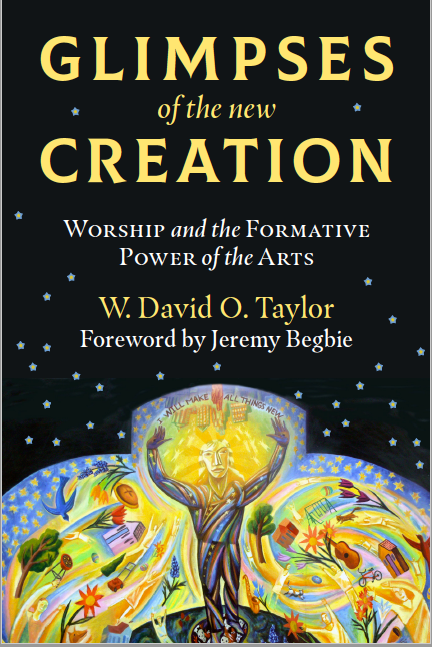
Associate Professor of Theology @fullerseminary. Author: "A Body of Praise" + "Open & Unafraid" + "Glimpses of the New Creation". IG: davidtaylor_theologian.
How to get URL link on X (Twitter) App


 Unlike a prayer that summons our present selves before the God of all grace, a beatitude invites us to imagine our truest selves under the light of God’s grace and, by the Spirit's power, to re-order our desires in order to live into our truest selves.
Unlike a prayer that summons our present selves before the God of all grace, a beatitude invites us to imagine our truest selves under the light of God’s grace and, by the Spirit's power, to re-order our desires in order to live into our truest selves.


 “Most contemporary Christians in Europe and North America...tend to deny that they want to touch Jesus or be touched by him. Isn’t it enough to look and see, they say? Isn’t that what Scripture commends to us—that we’ll see and know the LORD as we are known?"
“Most contemporary Christians in Europe and North America...tend to deny that they want to touch Jesus or be touched by him. Isn’t it enough to look and see, they say? Isn’t that what Scripture commends to us—that we’ll see and know the LORD as we are known?"




 Packer was profligate in his use of aphorisms and always found ways to make theology come alive for his students. He once explained Christ's mediatory role by way of this just-shy-of-impious analogy:
Packer was profligate in his use of aphorisms and always found ways to make theology come alive for his students. He once explained Christ's mediatory role by way of this just-shy-of-impious analogy: 



 The power of permanent works of art is a durative, *definitive* one. Such works of art can outlast the first generation of a church and often define a church’s singular identity in the world. The stained glass windows that belong to Duke Chapel illustrate this point.
The power of permanent works of art is a durative, *definitive* one. Such works of art can outlast the first generation of a church and often define a church’s singular identity in the world. The stained glass windows that belong to Duke Chapel illustrate this point.

 Most simply, prayer is about talking to God & listening to God. In practice, prayer is anything but simple. Pentecostals pray in tongues. Benedictine monks pray in Latin. Little children ramble to God, while adults struggle to talk to God or talk to God in habituated ways.
Most simply, prayer is about talking to God & listening to God. In practice, prayer is anything but simple. Pentecostals pray in tongues. Benedictine monks pray in Latin. Little children ramble to God, while adults struggle to talk to God or talk to God in habituated ways.

https://twitter.com/wdavidotaylor/status/1261480781140107264Conversely, plenty of authors published young & we're really glad that they did. Mary Shelley published "Frankenstein" at 21, while Hellen Keller wrote her autobiography at 22. My friend Lauren Winner wrote her first book at 25. Bonhoeffer wrote "The Cost of Discipleship" at 31.